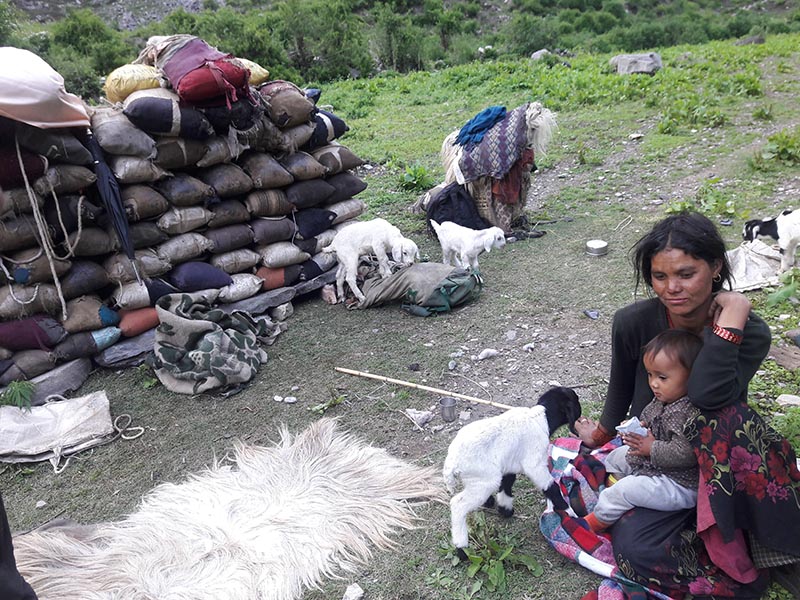Indigenous women compelled to deliver children on road
BAJURA: Eight-month pregnant Doma Thapa (29) of Budhinanda Municipality-9 is staying in Sain, a place between Humla and Bajura, away from her home. She has not undergone any kind of pregnancy check-ups or received any kind of vaccination.
Doma is preparing to migrate to the lowlands from mountains for the winter after four months of arduous stay since May. She is afraid that she will yet again give birth to her child on the way like two of her earlier childbirths.
Like Doma, many other indigenous (Bhote) women become helpless and are compelled to give birth on the way during migration from mountains to plains or vice versa every year. The indigenous community, due to poverty, lack of food and severe weather conditions are forced to migrate to warmer places during winter season and to the mountains during summer.
Entire families migrate in this manner along with their cattle and other possessions. Due to this kind of regular travelling, majority of pregnant women are forced to give birth on the way, said Chairperson Buddhi Bogati of Nepal Bhote Janajati Sewa Samiti.
Similarly, Mausami Thapa of Budhinanda Municipality lost her daughter just days after giving birth on the way to Achham. Cold weather, lack of appropriate care, proper food and rest led her to lose her newborn.
Likewise, Pakka Thapa (49) of Badimalika Municipality-9 in Bajura gave birth to five children, and four of them were born on the way during migration.
"We too have the desire to give birth in the safety and comfort of our homes but our circumstance won't let us enjoy that privilege," said Thapa.
Likewise, Lachhu Bogati of Pandusain in Budhinanda Municipality-10 questions, "We do not have enough to eat and have to keep migrating all year long with all our possessions. We do not get the opportunity to even think about a health facility, so where else can we possibly give birth?"
Majority of the indigenous Bhote community of the district reside in Pandusain village, where the women of the community rarely have any ante-natal check-ups, said Auxiliary Nurse Midwife (ANM), Madhu Shrestha, while adding that this had put the mothers and their newborns at great risk.
Despite a number of children from this indigenous community die every year, the record could not be found at the district health agencies.






